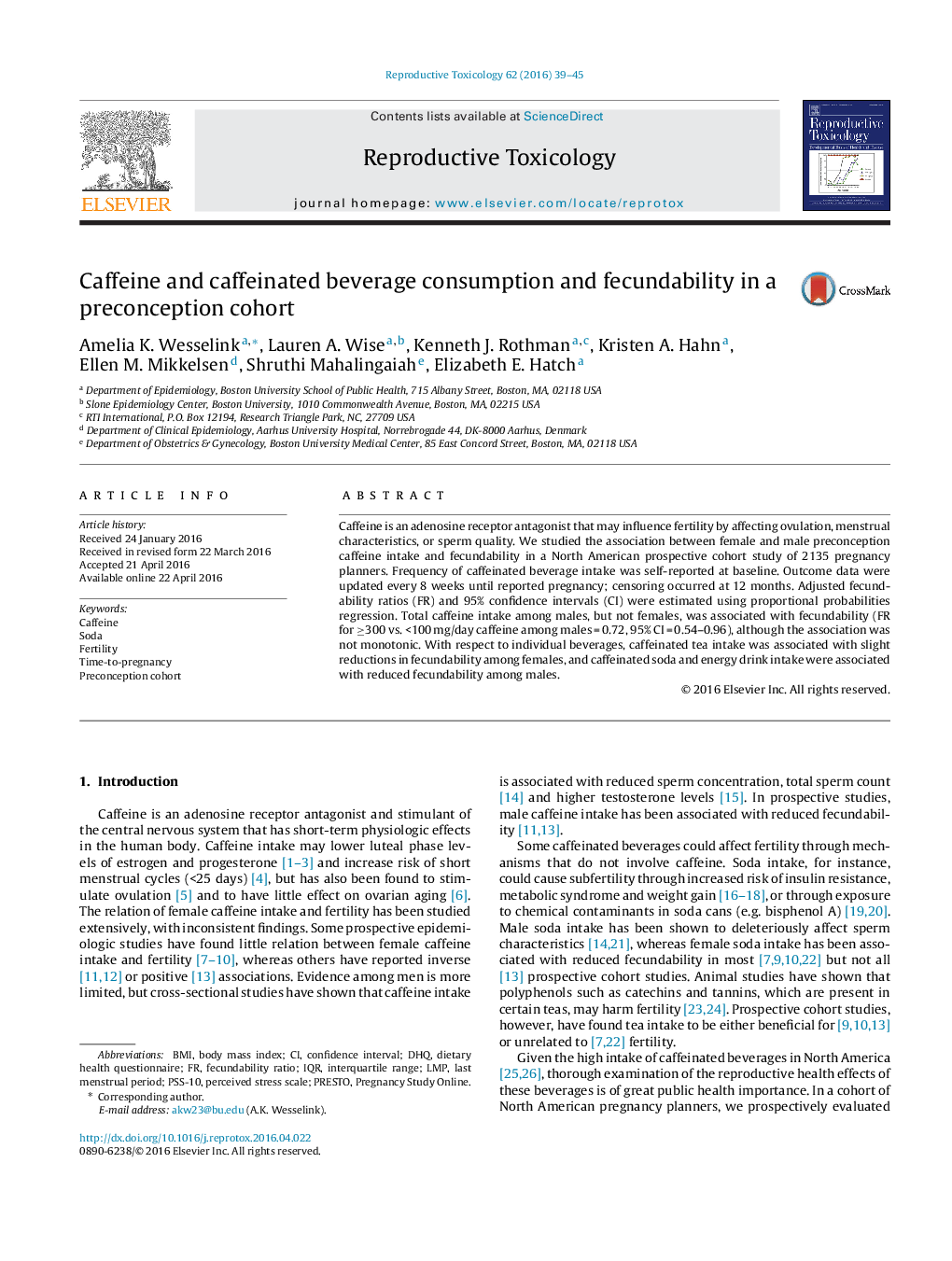| Article ID | Journal | Published Year | Pages | File Type |
|---|---|---|---|---|
| 5858016 | Reproductive Toxicology | 2016 | 7 Pages |
â¢Our results do not indicate an important association between male or female caffeine intake and couple fecundity.â¢However, male intake of soda and female intake of caffeinated tea were associated with reduced fecundability.â¢Male energy drink intake was associated with reduced fecundability, but the number consuming energy drinks was small.
Caffeine is an adenosine receptor antagonist that may influence fertility by affecting ovulation, menstrual characteristics, or sperm quality. We studied the association between female and male preconception caffeine intake and fecundability in a North American prospective cohort study of 2135 pregnancy planners. Frequency of caffeinated beverage intake was self-reported at baseline. Outcome data were updated every 8 weeks until reported pregnancy; censoring occurred at 12 months. Adjusted fecundability ratios (FR) and 95% confidence intervals (CI) were estimated using proportional probabilities regression. Total caffeine intake among males, but not females, was associated with fecundability (FR for â¥300 vs. <100 mg/day caffeine among males = 0.72, 95% CI = 0.54-0.96), although the association was not monotonic. With respect to individual beverages, caffeinated tea intake was associated with slight reductions in fecundability among females, and caffeinated soda and energy drink intake were associated with reduced fecundability among males.
